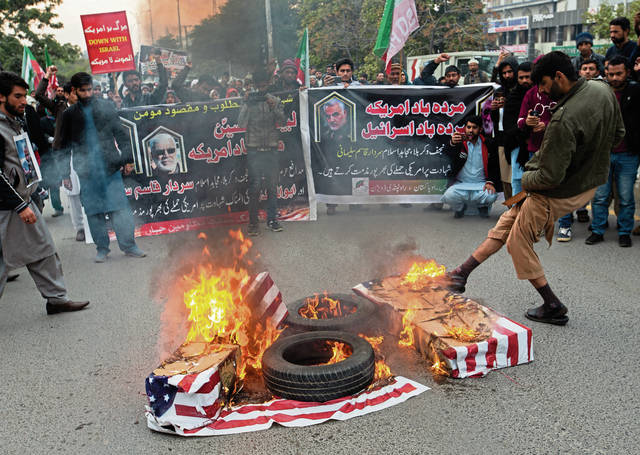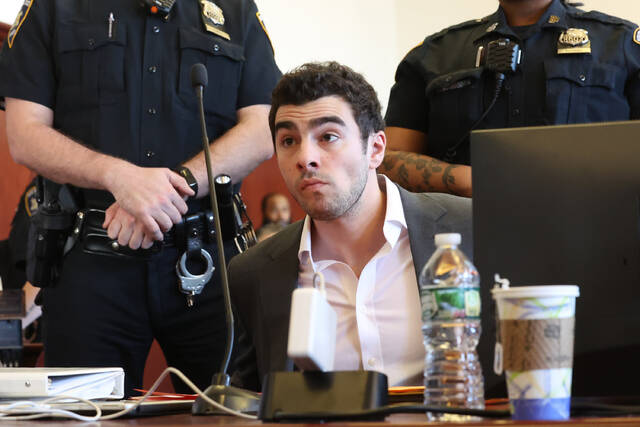Gen. Qassem Soleimani, head of Iran’s powerful Quds Force, wasn’t a name known to most Americans before a U.S. drone strike early Friday near Baghdad killed him.
But he’s been front and center among serious considerations for Iran watchers for years, said Julia Santucci, a senior lecturer in intelligence studies at the University of Pittsburgh’s Graduate School of Public and International Affairs.
Santucci spent a decade as a CIA analyst for Middle Eastern Affairs and more recently was on the staff of the National Security Council during the Obama administration. She said it would be a mistake to underestimate the significance of his death and Iran’s vow that it is planning “a harsh retaliation” against the United States.
In a country where the conventional military is viewed as weak, Santucci said, Soleimani was viewed as a figure who could carry out the Iranian agenda. Her comments echoed an Associated Press report that said many Iranians viewed Soleimani as a cultural icon, a symbol of national pride and resilience in the face of U.S. sanctions.
As head of the Quds Force, Santucci said Soleimani built Iran’s influence by infiltrating militias in Iraq and forging alliances with nonstate actors like Hezbollah forces in Syrian and Lebanon.
His death has undoubtedly escalated tensions with Iran, she said.
The deployment of additional U.S. troops to the region, coupled with U.S. Embassy in Baghdad’s alert Friday advising American citizens in Iraq to leave immediately, served to underscore increasing concerns.
“I don’t want to make it sound as though Soleimani is a good guy,” Santucci said. “He has been responsible for the deaths of Americans throughout the region. In some ways, this makes sense. But what is the long game? You’ve assassinated a very significant figure in the Iranian government. How do they respond and what is our broader strategy?”
In Washington, members of Congress were asking the same questions as some debated whether the targeted killing was an act of war.
Pennsylvania’s U.S. Sens. Bob Casey, D-Scranton, and Pat Toomey, R-Lehigh Valley, hailed the strike and said the world is safer with Soleimani dead.
Beyond that, they parted ways.
“Every American should be grateful to our armed forces who carried out this strike with incredible skill and precision. The Trump administration was right to restore deterrence against Iran,” Toomey said in his statement.
Like other Democrats, Casey said the Trump administration must provide a full briefing to Congress on the targeted attack. He said it should detail the intelligence behind the strike, the legal basis for it, the nature of the threat articulated by the Pentagon and the preparations and planning undertaken regarding potential retaliation by the Iranian regime against Americans abroad and here at home.
“As we prepare for fallout in the coming days, Congress has a critical role to play in assessing the legality of the strike, understanding its impact on U.S. national security and conducting oversight over this administration’s actions abroad,” Casey said in a statement.
Santucci said the Trump administration’s policy of exerting maximum pressure on Iran has been clear since it withdrew from the Iran nuclear agreement and reimposed sanctions.
“It’s been tit for tat in the last month with the attack on the base in Kirkuk and Iranian-backed militias storming the U.S. Embassy in Iraq this week. It’s been escalating, but we don’t know what the broader strategy is,” she said.
U.S. Sen. Lindsey Graham, R-S.C., a Trump ally, suggested the administration is not prepared to stand down.
“To the Iranian government: If you want more, you will get more,” Graham warned Friday.
The Associated Press contributed.








